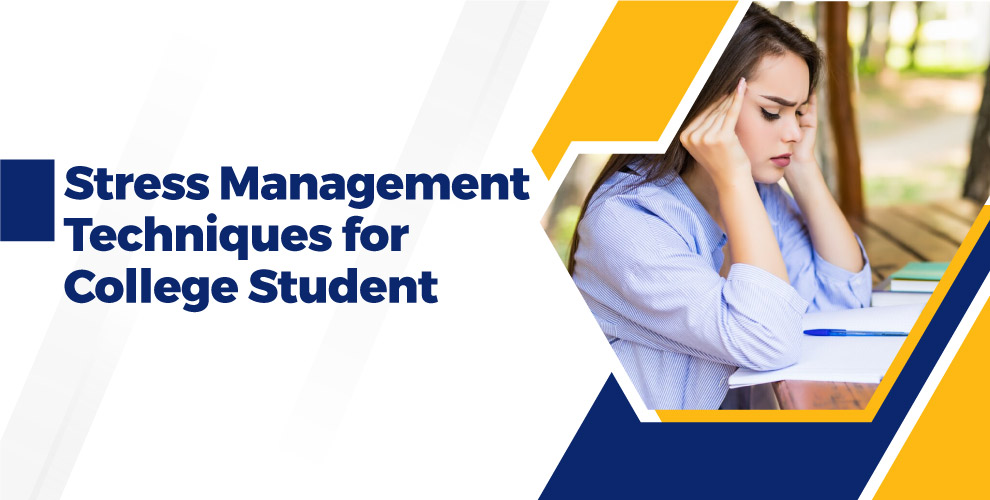College students, especially those in reputed engineering colleges like the Best Engineering Colleges in Coimbatore, India, may experience a lot of academic pressure, coupled with social expectations and personal issues—essential for student life experiences. The key to keeping both the body and mind on course is effective stress management. Here is a detailed guide on the stress management techniques that one can induce, tailor-made for students at the Best Engineering Colleges in Coimbatore.
1. Time Management and Organization
One of the major factors that cause stress among students in engineering fields is time management. When one has to keep a tab of classes, projects, examinations, and other extracurricular activities, things may get a bit tricky. Doing the following will help relieve you of this pressure:
Keep a Schedule: Planners and digital calendars will assist you in setting a routine for each day, week, and month. Categorize which work is due and when; make out specific times to study, take a break, and unwind.
Break Down Tasks into Smaller Steps: Large projects can be overwhelming. Break them down into manageable pieces and complete the smaller pieces one by one to prevent last-minute cramming and anxiety.
Use Time Management Tools: Tools like Todoist or Trello will help you keep track of your tasks and the time allocated to them.
2. Healthy Lifestyle Choices
Basic to effective stress management is leading a healthy life. What engineering students from top colleges should not also lose on are the following:
Balanced Diet: Give your body food that will be good for it. Do not take too much caffeine or junk foods that could potentially throw your energy and mood off course.
Exercise Regularly: Having general workouts is one of the key factors. It may be jogging, doing yoga, running around playing a sport, or even just walking. It helps decrease stress hormones and increases endorphins; it should improve your mood and overall energy.
Sleep Well: 7-9 hours of quality sleep at night. Lack of hours of sleep will deter your cognitive function and elevate your level of stress.
3. Effective Study Techniques
With the tools of studying one can de-stress academic performance:
Active Learning : Engage with the material by summarizing, teaching others, and using concepts to solve practical problems. This enhances understanding and retention.
Study Groups: You can get different perspectives and support from working with classmates or peers. However, make sure that study groups are productive and not distracting.
Practice Regularly: Allow for regular revision throughout your semester. Keep yourself clear of the last-minute stress of exams by reviewing regularly, so that you can avoid exam week disasters.
4. Mindfulness and Relaxation
This can greatly be reduced by including mindfulness and relaxation practices into your routine:
Meditation: With regular meditation, one learns to calm the mind and focus on things. It will make a huge difference even if you can spare some minutes each day.
Deep Breathing: Use deep breathing or progressive muscle relaxation for acute stress symptoms. Such exercises may reduce anxiety and induce relaxation.
Mindfulness Practices: Techniques such as mindful walking or journaling can increase your awareness; these practices may help keep you grounded amidst the chaos of college life.
5. Social Support and Communication
Building and maintaining a support network is important for a patient to effectively manage stress.
Peers: Interactions with peers by sharing experiences through mutual support. This reduces the feeling of isolation that brings stress.
Get Advice and Help: After all, professors and academic advisors can help; therefore, don’t hesitate to find and ask them for help, whether it is about your academic progress or personal issues you are facing.
Counseling Services: Most leading engineering colleges in Coimbatore offer counseling services. Make the most of such centers and express your challenge in devising a coping mechanism.
6. Setting Realistic Goals and Expectations
High expectations are motivating but also can produce stress if they become unrealistic:
Establish Realistic Goals: Set clear attainable goals for your academic and personal life. Setting small or incremental objectives may help you maintain motivation without the anxiety of being overwhelmed.
Know Your Limits: Understand and recognize that it is okay to have limitations. Striving for excellence is a very good thing, but it is all about maintaining a balance between being ambitious and caring about oneself.
7. Engage in Hobbies and Leisure Activities
Keeping a balance between academics and personal interests can provide a much-needed break:
Hobbies: Engage in things that interest you outside academics, either reading, music, or any other creative hobby. These could be great stress busters.
Social Activities: Attend social events and campus activities for relaxation and enjoyment. To balance college experience, ensure to include time for fun and relaxation.
Conclusion
In the high-pressure environment of the best engineering colleges in Coimbatore, India, keeping oneself from stressors is very important. To this end, students can turn to methods that range from time management and healthy lifestyle practices to mindfulness and social support to manage these pressures. Remember, therefore, that maintaining academic brilliance in coexistence with personal well-being is a sensitive matter in the highly demanding but ultimately very rewarding college life journey.


